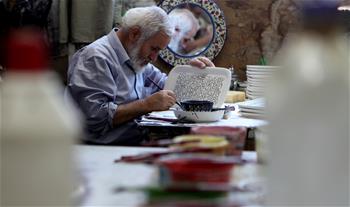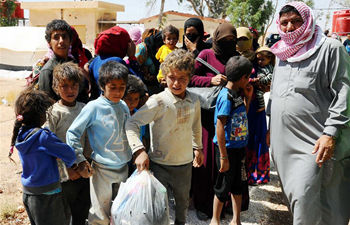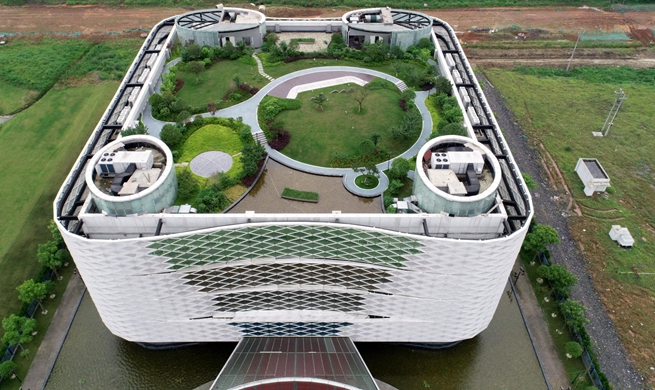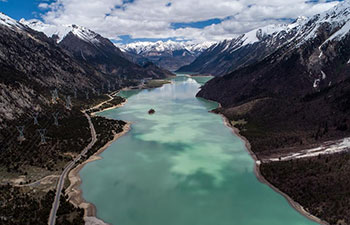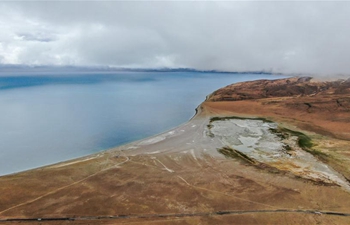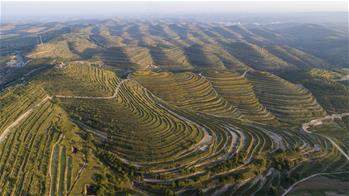LODWAR, Kenya, Aug. 1 (Xinhua) -- James Okoth has in the last four decades earned a living from fishing in the northern Kenyan county of Marsabit where he considers his second home.
Despite the poor returns from the venture, Okoth like other fishermen have struggled to make ends meet.
The father of six has to be contended with the high cost of fuel, maintenance of fishing net and his employees.
"The cost of running a boat and maintaining fishing nets and pay workers consume huge amount of profit from the catch," said Okoth.
He left his ancestral village in western Kenyan county of Siaya to set up fishing business at Loiyangalani beach in Marsabit County, hoping to change the fortunes of his family.
The fishermen are earning pittance due to poor handling and lack of storage facilities with majority still relying on salting, smoking and sun drying to preserve the catch.
Lake Turkana is the largest lake in Kenya, but due to its remoteness, the water body that straddles across Marsabit and Turkana counties remains largely underexploited.
The dwindling fish stocks in Lakes Victoria and Naivasha coupled with an increasing appetite for fish among Kenyans is driving up demand for the commodity.
Despite the demand, numerous factors have conspired to make fishing on Lake Turkana a loss-making venture.
There was no storage facility in Loiyangalani for raw fish until recently when Marsabit County set up a cold storage room.
Okoth said that dried fish fetches very little in the market with a small fish going for 40 Kenyan shillings (0.4 dollars), while a big one could fetch 0.7 dollars.
He said that majority of fishermen in the region are small scale and ply their trade with handmade nets on rafts made from palm trees with discarded plastic bottles used as floats.
"Lack of fishing gears and storage facilities has been our major obstacle to our business. We hardly take home good money," said Okoth.
Fish warehouses in Loiyangalani have stacks of sun-dried fish packed for transportation to Kisumu, Bumala and Busia -- towns that are on the shores of Lake Victoria.
Peter Ouma, a fish trader for the last three years, said that three lorries full of fish leave the town each week heading to the market.
Ouma said he left his home in Busia County to live in Loiyangalani so he could trade in fish.
"The dwindling fish in Lake Victoria forced me to come here and set up a fish business," said Ouma.
The launch of construction of a fishing factory by Marsabit County Governor Mohamud Ali has brought hope to hundreds of fishermen in the larger northern Kenyan region.
Ali said the project, which is expected to be operational in the next one year, will cost his administration 2 million dollars.
The plant would enable farmers to process their fish into fillet that will be packaged and shipped to markets in the south.
"The fishermen here does a lot of fishing but lack of storage facilities or a factory to process the situation has denied the community better returns," said Ali.
He said that his administration will lobby for the upgrade of the Loiyangalani airstrip and completion of the road linking the town to the Isiolo-Marsabit Highway in a bid to open up the fish market.


